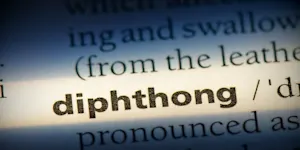What Makes This Word Tick
Pedagogy is a word that packs a punch in educational circles. All about the art, science, and craft of teaching, it finds itself at the heart of how knowledge is shared. It's much more than just instruction; it wraps in techniques, strategies, and the delightful "aha!" moments that every good lesson should inspire.
If Pedagogy Were a Person…
Imagine Pedagogy as a seasoned teacher with a twinkle in their eye. With chalk-stained hands and an endless curiosity, they'd be the type to find new ways to spark interest, whether through storytelling, a well-timed joke, or a profound question that leaves you thinking for days.
How This Word Has Changed Over Time
Historically, pedagogy was a role associated with the Greek Slave, who was tasked with walking a child to school and back. Over time, the term evolved to encapsulate the broader approaches and methodologies of teaching. It now shines a light on everything from classroom dynamics to digital learning techniques.
Old Sayings and Proverbs That Use Pedagogy
While the word "pedagogy" doesn't feature prominently in vintage sayings, the spirit of teaching is captured in phrases like "You teach best what you most need to learn" and "Those who can, teach." They echo the core of pedagogy—sharing knowledge in a way that resonates and sticks.
Surprising Facts About Pedagogy
Did you know that pedagogy is technically more specific to child-focused teaching, with 'andragogy' being the term for adult education? It's like the teaching world has its own vocabulary family tree! Also, today's pedagogical strategies often incorporate technology—something unimaginable in the early days of education.
Out and About With This Word
Outside the glossary, pedagogy is a staple in academic journals and educational workshops. Wherever professional development is taking place for teachers, this word isn't far behind. It's like the secret sauce that makes teaching both effective and engaging.
Pop Culture Moments Where Pedagogy Was Used
In the film "Dead Poets Society," Mr. Keating’s unorthodox teaching methods showcase a dynamic approach to pedagogy. This portrayal highlights how different pedagogical approaches can inspire students and change lives—proof that teaching is as much about the method as the content itself.
The Word in Literature
In literature, pedagogy often finds its home in educational texts and teacher handbooks, setting the tone for how classrooms should operate. It sometimes pops up in novels centered around education and personal development, where the transformative power of great teaching is a central theme.
Moments in History with Pedagogy
Think of the pivotal moments in history—the Renaissance, for example—where the transfer of knowledge and ideas took center stage. While 'pedagogy' might not have been used directly, its essence was vital in the spread of new ways of thinking and the educational advancements of that era.
This Word Around the World
Around the globe, education systems carry varying ideas of pedagogy. In Finland, renowned for high-quality education, pedagogy focuses on student well-being and cooperative learning. In Japan, the lesson study system reflects their unique pedagogical methods, emphasizing continuous improvement.
Where Does It Come From?
The word 'pedagogy' roots itself in Greek, with 'paidagogos' meaning "to lead the child.” Originally, the pedagogue was a slave in charge of guiding a boy to school and back—pretty far from today’s Ph.D. experts on learning methodologies!
How People Misuse This Word
Sometimes, pedagogy is mistakenly used to mean any form of teaching or training, missing its specific context of educated methods and theory. Misusing it to describe informal or non-structured instruction isn’t quite accurate.
Words It’s Often Confused With
Andragogy: Often confused due to its similar pronunciation, but refers specifically to adult learning theories and practices.
Curriculum: While related, this focuses on the content to be taught, not the method or approach.
Heuristic: Though method-related, heuristics revolve around problem-solving techniques, not teaching methods.
Additional Synonyms and Antonyms
Synonyms for pedagogy include "instruction," "teaching," and "education." As for antonyms, terms like "ignorance" and "misinstruction" fit the bill, representing the absence or incorrect application of educational techniques.
Want to Try It Out in a Sentence?
"Her innovative pedagogy transformed the tired curriculum into something dynamic and engaging, sparking newfound interest among her students."
















